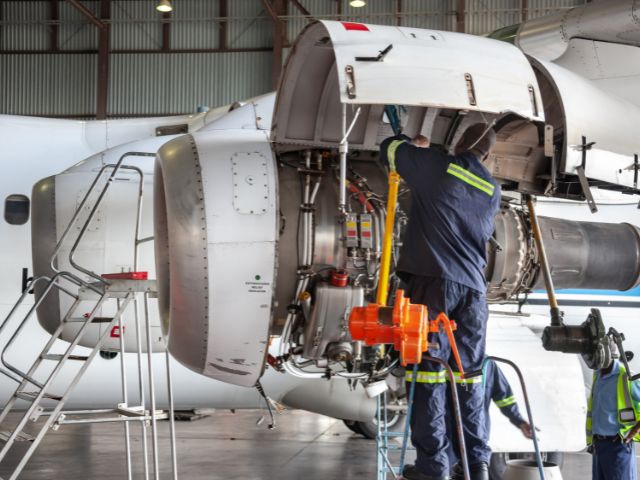
 tech
tech 
As a pilot or aircraft mechanic, it is essential that you check the fluid levels of your aircraft regularly. Not only does this ensure your plane is running properly, but it can also help you identify any potential issues before they become serious problems down the road.
Let’s break down why checking fluid levels in your aircraft is so important and how you can do it.
Your aircraft’s fluids play an integral role in its operation. Without them, your engine won’t run properly, which could put passengers and crew at risk. Additionally, checking your aircraft’s fluids helps identify any potential issues before they become more serious and potentially more expensive problems.
These issues could indicate leaks or cracks in hoses or other system parts that may not be visible from the outside. It’s also important to note that certain fluids contain additives that can wear out over time, so keeping an eye on these levels will help ensure your engine is running optimally.
Checking fluid levels in your aircraft is relatively simple. Most modern aircraft have easily accessible dipsticks or gauges near the engine where you can check oil, coolant, and hydraulic fluid levels as needed. If you don’t have access to these tools (or if they’re not available), removing some of the panels covering the engine may be necessary to get a better look at the system.
Once you’ve done this, simply look around and ensure all the hoses are connected properly and there are no signs of leaks or other damage. Then, use a clean rag or cloth to wipe away any dirt or debris around each hose before reading the fluid level with your dipstick or gauge.
Regularly checking fluid levels in your aircraft can help ensure its safety and longevity while avoiding costly repairs down the road. Checking these levels is one of the common maintenance tasks for commercial aircraft engines that you should always follow. Set aside time for this important part of your aircraft’s upkeep. You’d rather be safe than sorry when it comes to flying, so always double-check that your engine’s fluids are at the proper levels before takeoff.
24World Media does not take any responsibility of the information you see on this page. The content this page contains is from independent third-party content provider. If you have any concerns regarding the content, please free to write us here: contact@24worldmedia.com